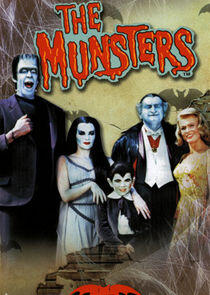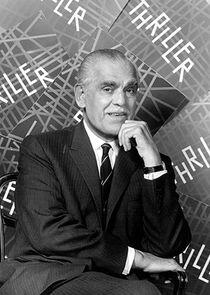
John McCarthy
Gaining experience on a seemingly endless succession of B-movies, his stock began to rise steadily in 1948 when he worked on Frank Borzage's Moonrise and Orson Welles' production of Macbeth. Assignments on Lewis Milestone's The Red Pony and Allan Dwan's Sands of Iwo Jima followed in 1949, films produced for Republic Pictures, with whom McCarthy was associated for many years. He was the recipient of an Oscar nomination in 1952 for John Ford's colourful The Quiet Man, the only Republic film to be so honoured.
By the mid-1950s and early 1960s, however, most of McCarthy's time was spent in television, where he worked on Alfred Hitchcock Presents, Wagon Train and The Munsters. Ironically, his television work led to better feature film assignments, all of them for Universal Pictures: Don Siegel's remake of The Killers (1964), the Doris Day comedy Send Me No Flowers (1964), the James Stewart Western Shenandoah (1965), Ronald Neame's caper movie Gambit (1966), for which he received a second Oscar nomination, the war epic Tobruk (1967), Coogan's Bluff (1968) and Robert Aldrich's acclaimed Ulzana's Raid (1972). Television still called him in the 1970s for programmes like Ironside and Columbo.
Biography from the Wikipedia article John McCarthy Jr.. Licensed under CC-BY-SA. Full list of contributors on Wikipedia.
Part of Crew
Recently Updated Shows

NCIS
NCIS (Naval Criminal Investigative Service) is more than just an action drama. With liberal doses of humor, it's a show that focuses on the sometimes complex and always amusing dynamics of a team forced to work together in high-stress situations. Leroy Jethro Gibbs, a former Marine gunnery sergeant, whose skills as an investigator are unmatched, leads this troupe of colorful personalities. Rounding out the team are Anthony DiNozzo, an ex-homicide detective whose instincts in the field are unparalleled and whose quick wit and humorous take on life make him a team favorite; the youthful and energetic forensic specialist Abby Sciuto, a talented scientist whose sharp mind matches her Goth style and eclectic tastes; Caitlin Todd, an ex-Secret Service Agent; and Timothy McGee, an MIT graduate whose brilliance with computers far overshadows his insecurities in the field; Assisting the team is medical examiner Dr. Donald "Ducky" Mallard, who knows it all because he's seen it all, and he's not afraid to let you know. From murder and espionage to terrorism and stolen submarines, these special agents travel the globe to investigate all crimes with Navy or Marine Corps ties.

Landman
Set in the proverbial boomtowns of West Texas, Landman is a modern day tale of fortune seeking in the world of oil rigs. The series is an upstairs/downstairs story of roughnecks and wildcat billionaires fueling a boom so big, it's reshaping our climate, our economy and our geopolitics.

The Creep Tapes
Based on a collection of videotapes in the secret vault of the world's deadliest and most socially uncomfortable serial killer, who hires his victims to film him for the day under false pretenses, each episode exposes a new victim from one of the fabled 'Creep Tapes'.

America's Funniest Home Videos
ABC's longest-running primetime entertainment show, America's Funniest Home Videos, returns for season 36 this fall with the same mission -- giving families something genuinely funny to enjoy together on Sunday nights.
"AFV," the longest-running primetime entertainment show in ABC history, returns for season 36 with the same mission - to provide viewers with hysterical moments that fly by at a dizzying pace.

The Real Housewives of Potomac
Just up the river from our nation's capital lies a hidden gem—Potomac, Maryland. Its rolling hills, gated mansions, sophisticated prep schools, and exclusive country clubs all serve to keep the area invitation-only. Sprinkled throughout this community are a handful of old-line, wealthy African-American families who have historically broken racial barriers to provide a life of privilege for their children. The Real Housewives of Potomac follows the upscale lives of six intriguing, well-to-do women: Gizelle Bryant, Katie Rost, Karen Huger, Charrisse Jackson-Jordan, Robyn Dixon, and Ashley Darby, all of whom have fought for their places in this society by way of legacy or marriage. In a town where entry is granted only through class, pedigree, and lineage, how far will these ladies go to secure their spot at the top of this prestigious circle?


